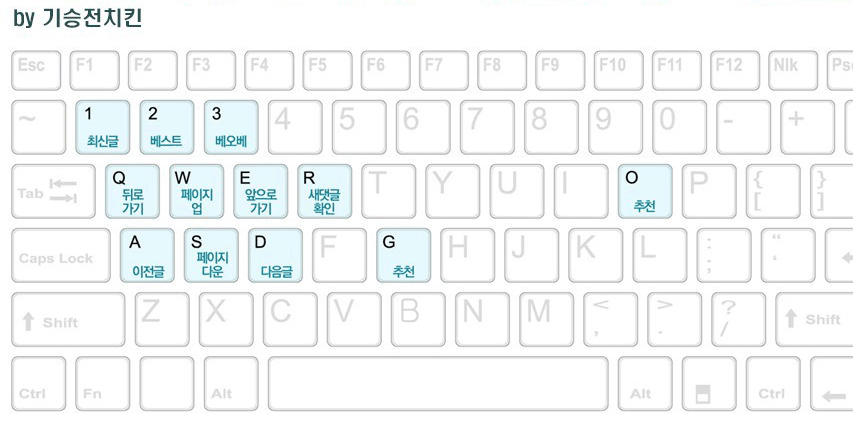아래는 시카고 트리뷴지에 실린 기사입니다.
On a recent Saturday night a group of white, middle-class TV fans gathered at a Northwest Side cafe to watch the final episode of their favorite show and to say goodbye to a cast of ethnically homogenous characters who had come to feel like friends.
얼마전 토요일 저녁, Northwest Side카페에서는 중산층급 백인들이 모여앉아 그들이 좋아하는 TV쇼의 마지막편을 보며 그들이 친구처럼 느껴왔던 드라마 인물들과 작별인사를 하였다.
Their names, however, were not Joey, Chandler, Phoebe or Rachel.
하지만 그 인물들의 이름은 조이,챈들러,피비,레이챌이 아니었다. (Friends의 등장 인물들)
But rather Jang Geum, Jung Ho, Geum Young and Joong Jong .
그들의 이름은 장금, 정호, 금영 그리고 중종이었다.
They were the main players of the Korean-language drama "A Jewel in the Palace" (or "Dae Jang-Geum"), a 60-part dramatic serial shown on WOCH-Ch. 28 that has turned scores of non-Korean Chicagoans into junkies.
그들은 채널 28번에서 방영되어 한국인이 아닌 시카고 사람들을 중독자를 만든 60부작 한국어 드라마 "대장금"의 등장인물들이었다.
"Many of us stumbled on the shows on 28 while flipping channels and wound up getting addicted," says J.P. Paulus of Chicago, who runs one of a handful of English-language Web sites for Korean drama addicts looking for an online fix.
"우리 대부분은 그냥 채널을 돌리다가 이 프로그램을 발견하고는 결국은 중독이 되어버렸어요." 한국드라마 중독자를 위한 여러개의 웹사이트를 운영하고 있는 J.P.파울러스의 말이다.
Although "Dae Jang-Geum" wrapped up last week, Korean drama junkies needn't panic. The next Korean series, "Firebird," kicks off its run with subtitles at 8 p.m. Friday
"대장금"은 저번주로 끝이났지만, 한국드라마 팬들은 슬퍼할필요가 없다. "불새"라는 새로운 시리즈가 자막과 함께 다음주 금요일 8시부터 시작 되기 때문이다.
Chicago's Albany Park-based, low-power station, Ch. 28 (which is not available on any cable systems) started subtitling the dramas a few years ago, primarily to reconnect second-generation Korean Americans to their culture. But when the station did a viewership survey last year to see how the endeavor was working, station managers discovered they had attracted a sizable non-Korean fan base.
시카고 알바니 공원에 배이스를 두고있는 28번 방송국은 한국인 2세들을 위한 자막을 넣은 드라마방영을 몇해전 부터 시작했다. 하지만, 작년 시청자 여론조사에서 꽤 큰 비중의 비한국인 시청자들이 이 채널을 보고 있다는것이 밝혀졌다.
"We got about 500 e-mails from people who were not Korean but who were fans of the show," says Kwang Dong Jo, vice president of the station that is also known as KBC-TV. "We never expected that the non-Korean Americans would be watching these shows."
"한국드라마를 좋아하는 외국인 팬들로 부터 500여통의 이메일을 받았어요." 조광동, KBC-TV의 부사장의 말이다. "한국인이 아닌 미국인들이 이 프로그램을 보리라고 예상하지 못했습니다."
But they were, each falling into it in similar accidental ways and getting hooked.
하지만, 모두 비슷한 방법으로 우연히 그 프로그램들은 접하며 중독되고 있었다.
"I was flipping through the TV, and there was this historical drama with subtitles that I just started following, and I got hooked," says Darinka D'Alessio. "My husband originally would walk past while I watching and say, 'You're nuts,' but now he is sucked into it too."
"그냥 채널을 돌리다가, 자막이 나오는 역사극을 하길래 그냥 보기시작했죠. 그리고는 빠져들었어요." 다리카 디알레시오의 말이다. "남편이 오며가며 저를 보면서 '돌았군' 하며 말하곤 했는데, 지금은 함께 보고 있어요."
Many viewers assumed they were alone in this odd secret pleasure until they found fellow obsessives online.
인터넷에서 다른 비슷한 사람들을 만날때까지 이들 대부분은 이것을 자기들만 가지고 있는 숨겨진 보물이라 생각하고 있었다.
"I was watching Asian dramas for the better part of 10 years, and I just stumbled on the Web site accidentally," says Nancy, a Southern California resident who asked not to reveal her last name. "It's like a secret society that I had no idea about. It was like a veil was lifted and I was really able to get into them and understand them. Then I realized that there was this whole strata of non-Asians watching."
"아시아 드라마를 거의 십년동안 보았습니다. 그러다가 우연히 웹사이트를 찾았어요." 남가주에 사는 자신의 이름을 밝히기를 꺼리는 낸시라는 사람의 말이다. "마치 비밀단체 같아요. 마치 베일이 벗겨진듯 그들을 이해할 수 있게 되었어요. 그리고는 아시아인이 아닌 사람들도 많이 본다는걸 알게되었지요."
Non-Korean fans cite many reasons they're hooked on the shows, including an emphasis on family, minimal sex and violence, high production values and the chance to peek into another culture.
가족에 대한 중요성강조, 적은 폭력과 섹스, 높은 완성도, 다른 문화를 접할수 있는 기회등등 비한국인 팬들이 이 프로그램들을 즐기는 이유는 다양하다.
Tired of rude kids on TV
TV에 나오는 버릇없는 아이들에게 질렸다.
"I am interested in how the family gets along, what the grocery store looks like, how old are they when they get married and do they go to college," Carolyn Hazzard of Chicago says. "Even though they are non-violent for the most part, the parents do slap the kids a lot. I got tired of regular TV with rude kids on sitcoms, saying things that I would never allow my kids to say."
"어떻게 가족이 지내는지, 식품점은 어떻게 생겼는지, 몇살에 결혼을 하고 어떻게 대학에 가는지 하는것들이 흥미있어요." 시카고에 사는 캐롤 해저드씨의 말이다 "(한국드라마에서는) 거의 폭력적인 장면을 찾아보기 힘들지만, 부모가 자식을 때리는 장면은 많더군요. 내 아이들에게 절대 못하게 할 거친 말들을 뱉어내는 (미국)TV에 나오는 싸가지 없는 아이들에게는 질렸거든요."
Kathleen Wrobel of Oak Park says she appreciates the show's no-nonsense approach to discipline and morality.
오크파크에 사는 캐서린 뤄벨씨는 비상식적이지 않은 규율과 도덕성을 높이 평가한다고 말한다.
"There seems to be such a focus on doing the right thing without any political correctness," Wrobel says. "People just get whacked in the head, and the parents and grandparents will even smack the adults. Everyone is not running around with everyone else's wife -- and if they do, they pay dearly."
"정치적시선에 치우치지않고 옳은것을 해야한다는데 중점을 둔것같아요." 뤄벨씨의 말이다. "사람들은 머리를 얻어맞아요. 부모와 조부모는 성인이 된 자식들을 때리는것도 서슴치 않죠. 다른 사람의 아내와 돌아다니다가는 큰일을 치르게 되죠."
But Chicago fans aren't alone. If you go by the traffic on national Web sites, you find fans cropping up in every market where Korean television stations broadcast the shows -- sometimes without subtitles. Clusters in New York, Southern California, Seattle, Hawaii and Philadelphia (where it is shown on PBS) jump online to kibitz about the latest episodes. Paulus' Web site features a chart of recent dramas as well as links to other English language fan sites, while
www.koreanwiz.org, explain Korean family customs, business standards, foods, drink, architecture and gestures.
팬층이 시카고지역에만 국한되것은 아니다. 웹사이트의 트래픽을 조사해보면, 한국드라마가 방영되는 거의 모든 지역에서, 때로는 자막없이 방송되는 지역에서도 팬들이 발견된다. 뉴욕, 남가주, 시애틀, 하와이와 필라델피아 (공영 방송국에서 방송되는)의 팬들은 인터넷에 들어와 최신 프로그램에 관해 수다를 떤다. 파울러서씨의 웹사이트에서는 최신 드라마 편성표와 다른 영어팬사이트를 소개하고,
www.koreanwiz.org에서는 한국에 대해 설명하고 있다 (음식, 가족관등등등).
But Americans are only a tiny -- if unintended sector -- of the international Korean drama fan base.
하지만 전세계의 한국드라마 팬중 미국인은 소수에 불과하다.
In the past half decade Korean culture has flooded Asia in what has been dubbed "Hallyu," or the "Korean wave." Films, food, fashion, music and especially TV dramas from South Korea have emerged as major cultural and economic forces in China and Japan.
지난 5년동안 한국문화는 "한류"라는 이름으로 아시아 일대를 넘치기 시작했다. 영화, 음식, 패션, 음악, 그리고 특히 남한의 TV 드라마는 중국과 일본은 강력한 문화 경제의 영향력으로 등장하였다.
"Things like Chinese clothing companies and beauty shops are affected because immediately the people want the clothes and hairdos they see on the Korean dramas," notes Jo. "And in Japan, about three months ago, for the first time a major Japanese network put the Korean drama `Winter Love' on in prime time. The Japanese are very proud of their culture, and so this is such a big step."
"한국드라마를 보고 거기나오는 옷이나 머리모양을 하고 싶어하는 사람들로 인해 중국 의류품회사나 미용실이 영향을 받습니다." 조가 말한다. "그리고 석달전에 일본에서는 한국드라마 '겨울연가'를 주시간대에 방송했었죠. 자신들의 문화를 무척 자랑스러워하는 일본인들에게 이건 무척 의미있는 발전입니다."
Second-generation viewers
2세 시청자들
Many parents of Korean-American kids hoped these shows would also boost the morale and cultural interest of their children, but Jo says the second generation hardly responded to the call for e-mails about the subtitling.
2세 자녀를둔 한국인 부모는 이러한 프로그램들이 자기의 자녀들에게 도덕성과 고국의 문화에관한 관심을 일으켜 주기를 원한다. 하지만 조의 말에 의하면 2세들은 자막에 관해 보내는 요청에 답을 하지 않는다고 한다.
"The second-generation boys don't watch because there is so much romance and they think it is woman stuff, but I know that many second-generation girls are watching," he says. "They just don't give us a lot of feedback, and I attribute that to a passiveness
in our culture."
"2세 남자들은 너무 로맨스의 치중해있다는 이유로 보지않지요. 하지만 2세 여자들은 보고 있습니다." "단지 의견을 보내기를 꺼릴 뿐이죠."
--- 드라마 줄거리 중략 ---
"You get sad when a show ends," says Ken Morris of Chicago who was at the cafe with his wife and fellow fan, Joan. "But at the same time, that is another thing we like about them. Unlike a lot of American shows, these ones do have an ending."
"드라마가 끝나면 슬퍼요." 같은 팬인 아내와 아내의 친구와 함께 카페를 찾아온 켄 모리스씨의 말이다. "하지만 한편으로는 그래서 이 프로그램들을 좋아하는 이유기도 하지요. 미국프로그램과는 달리 끝이라는게 있으니까요."
In addition to "Firebird," which airs at 8 p.m. Fridays and Saturdays, WOCH-Ch. 28 broadcasts other subtitled dramas: the hour-long "The Age of Warriors" at 8 p.m. Mondays and Tuesdays; and the 30-minute daily drama "One Million Roses" at 6 p.m., Mondays through Fridays.
금요일과 토요일 8시부터 방송되는 "불새" 이외에도, 채널 28번에서는 한시간짜리 드라마 "무사의시대" 월요일과 화요일 8시에, 그리고 30분 짜리 "백만송이장미"를 주중 6시에 방송한다.













